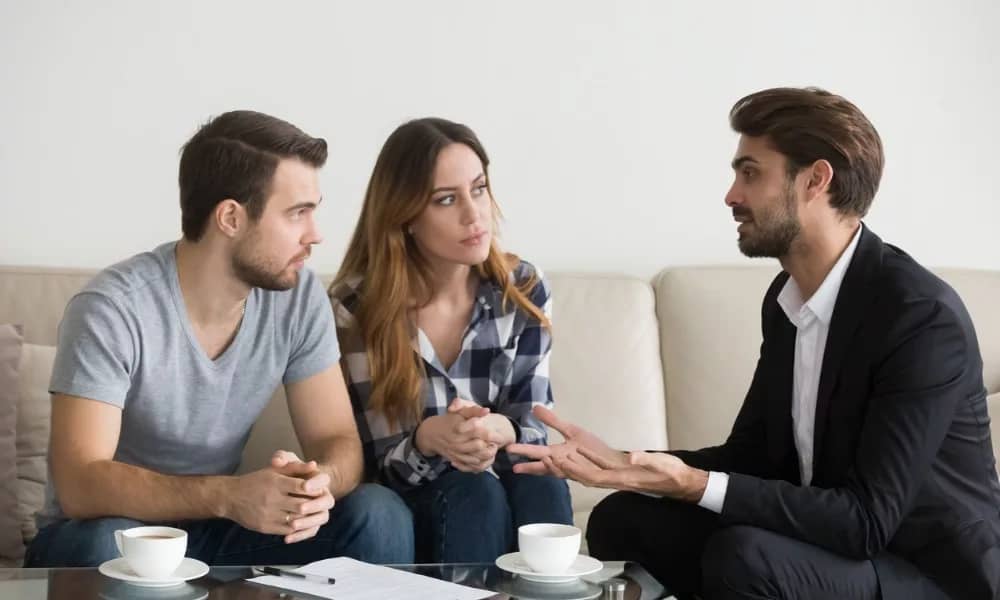
Develop and establish a strong therapeutic alliance with both partners. A Registered Clinical Counsellor will work to establish a safe and trusting space where both you and your partner feel comfortable sharing thoughts and feelings

Focus on the present moment and the couple's current issues. The past is important and worth addressing for the purposes of improving the present and changing the trajectory of the future. It may take time to understand how the past effects the present and it is always for the purpose of understanding the present rather than just dwelling on past conflicts or events.

Couples therapy helps you as a couple to identify and express emotions in a healthy and constructive way. This includes helping to experience what it is like to use effective communication skills, address conflict, heal relationship ruptures and help them to build emotional intimacy. Teaching and modelling skills for managing stress and difficult emotions, such as mindfulness and relaxation techniques.

Exploring and addressing the underlying emotional and psychological factors that are inhibiting intimacy and contributing to the couple's conflicts. A good couples counsellor should also identify and address individual issues, also be aware of any individual issues that may be impacting the relationship and work toward effectively addressing them in
therapy.
Your therapist should encourage both partners to express their emotions in a healthy
and constructive manner, and to listen actively and show understanding for to each other. Modelling, and encouraging empathy reflecting true understanding can be transformative. By helping a couple to understand each other's perspective and to
empathize with each other's feelings, couple’s counselling opens up the possibility of
true connection and intimacy.

Identify the negative patterns in the relationship. A therapist needs to help a couple recognize their patterns of engagement, emotional themes and behavior that are causing conflict or damaging the relationship. Counselling can work to modify or eliminate them and help the couple work to repair past hurts. The therapist should help the couple to work through and repair any past hurts or traumas that may be impacting their current relationship.

Assist a couple to create achievable goals while fostering a sense of commitment to the relationship and support the couple in a develop a plan to achieve their goals. A good couples counsellor will encourage positive interaction between the couple such as activities that strengthen their relationship.

Encourage both partners to take responsibility for their thoughts feeling and actions and work towards positive change.

Foster empathy and understanding between a couple. Helping the couple to see things from each other's perspective.

Support the couple to develop long-term strategies to learn the skills needed to maintain a healthy and satisfying relationship, even after therapy has ended.

Help the couple to celebrate their progress and monitor their successes. Couples relationships are one of the most meaningful and satisfying relationships we can have over a lifetime. If this lifetime relationship is important then monitoring the success and well-being of this relationship is very important. The therapist can help the couple to develop a plan for maintaining progress including regular relationship check-ups and couples therapy and to identify any potential roadblocks to their continued success. Working for a lifetime relationship is extremely meaningful and rewarding. Regular work with a couples therapist can make the difference. Choosing the right therapist, who feels honoured to help can make all the difference.
Overall, effective couples’ therapy is about having a counsellor who creates a safe and
supportive environment for both partners to work together to identify and overcome
the challenges in their relationship, build emotional intimacy and develop the skills and
strategies necessary for a long-term, satisfying partnership.








